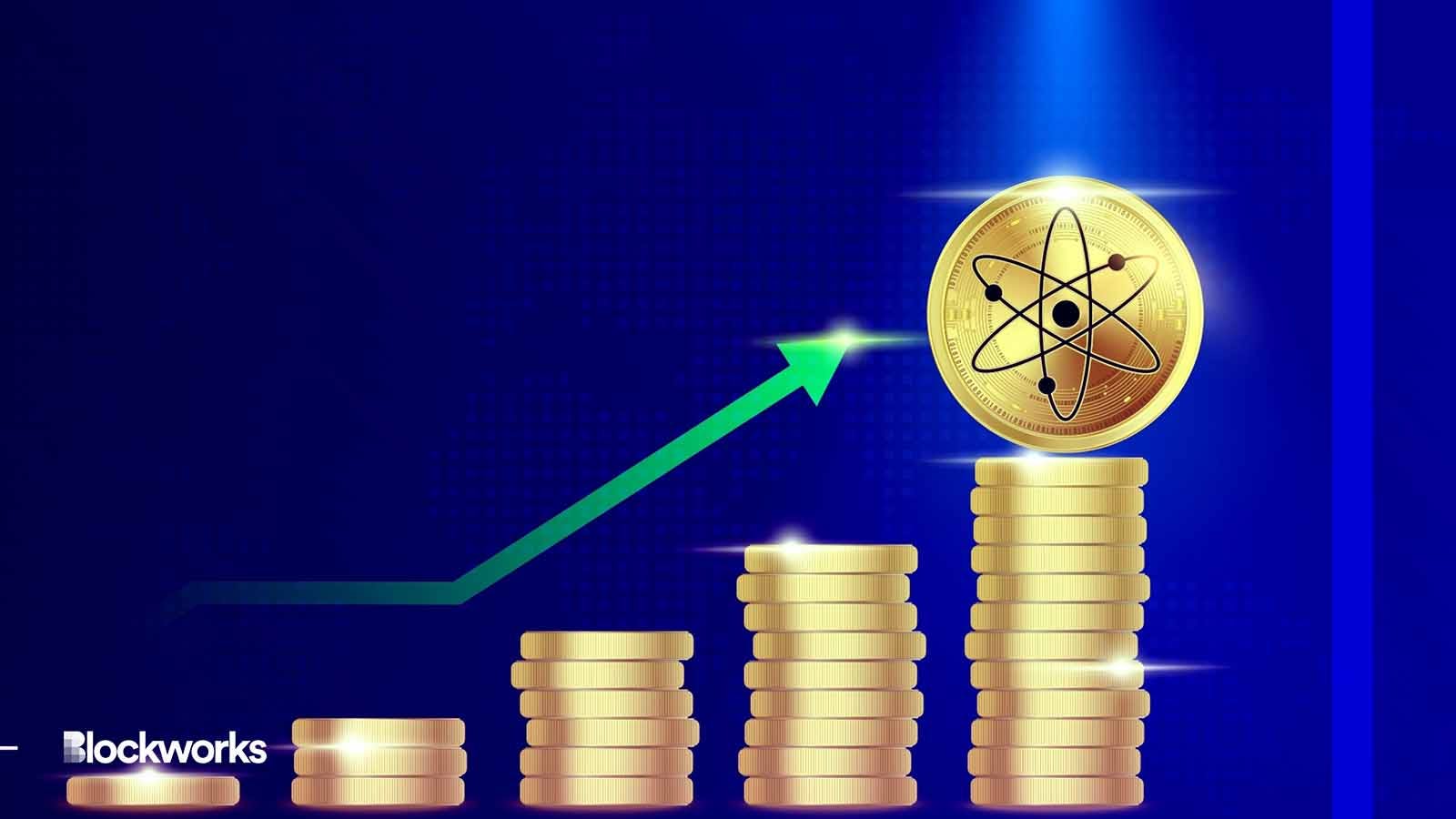Cosmos devoted funds to boost DeFi activity. It scored a token windfall in return
Neutron is seeking the reallocation of 25k ATOM tokens that had initially been given to P2P

Luckymane/Shutterstock modified by Blockworks
The Cosmos Hub will soon receive a significant token windfall on a proposal from last year.
Proposal 78 was first introduced in May last year, designed to introduce liquid staking and interchain DeFi into its ecosystem.
The proposal sought a total of 150,000 ATOM tokens, an amount worth roughly $950,000. The ATOM tokens would then be invested in projects able to bring liquid staking and DeFi activity to the interchain through replicated security (RS).
Replicated security is a shared security model used by a network of blockchains part of the Cosmos ecosystem. The Cosmos Hub can be considered the main point of contact for the various blockchains developed within the Cosmos ecosystem.
Of the 150,000 ATOM tokens in the initial proposal, 50k worth of ATOM tokens were given to P2P, a proof-of-stake validator and remote procedure call (RPC) node provider, to build Neutron. Neutron is a layer-1 CosmWasm blockchain that enables smart contracts to be deployed across multiple blockchains.
So far, only 25,000 of the 50,000 ATOM has been received by the Neutron team and a proposal to reallocate the remaining 25,000 ATOM from P2P to Neutron is underway.
At the time of writing, almost 97% of voters are in favor of Neutron receiving the additional 25,000 ATOM, though the proposal itself has not yet reached quorum. Voters will have until the Aug. 24 to cast their votes.
Additionally, the proposal will provide the Cosmos Hub with one of its largest allocation returns to date.
Now that Neutron has officially launched on RS, an estimated $12 million will be sent back to the Hub as part of an airdrop. The team called it “an expected initial return of 28x the original Prop 72 allocation.”
This amount is in addition to the initial agreement whereby 25% of all transaction fees and 25% of all MEV revenue will be given to the Hub.
Neutron plans to submit a proposal to ensure that the airdropped tokens can be used to contribute to Neutron governance.
Get the news in your inbox. Explore Blockworks newsletters:
- The Breakdown: Decoding crypto and the markets. Daily.
- 0xResearch: Alpha in your inbox. Think like an analyst.






